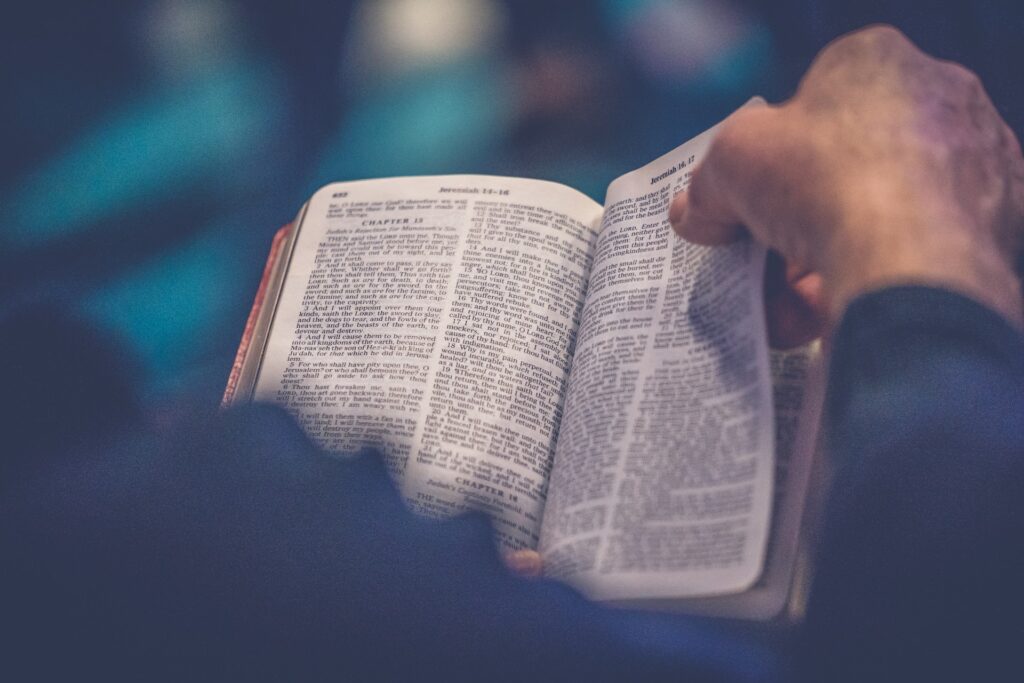Miracles and Tongues
Have you met anyone building an Ark lately? (I’m talking about Noah’s kind of Ark.) Maybe it’s because of the rainbow, but we all managed to get the message that never again would an Ark be needed. The message some of us haven’t gotten is that just because God operates one way at a certain time in history, it doesn’t automatically follow that he will operate the same way today.
Let’s consider miracles. Did Abraham, long considered the father of the faithful, perform miracles? None that I can think of. What about Isaac, Jacob, or Joseph? King David? King Solomon? Isaiah? Jeremiah? No.
God’s Miracles
I’m not saying God never performed supernatural feats during the lifetimes of these servants – He rained down fire on Sodom and Gomorrah while Abraham watched. He turned Lot’s wife to a pillar of salt. He protected David from the wrath of King Saul, sometimes under conditions that seemed miraculous. But these events were sovereign acts of God, which He chose to perform without the use of a human mediator.
When the Lord thwarted an enemy in behalf of His people, He sometimes used judges or kings – Samson, Gideon, David’s victory over Goliath. The Old Testament records many occasions when God intervened during times of war. But if we consider the kinds of signs and wonders that some ministers claim are in operation today, I am taking the position that there were only three time spans in human history during which God chose routinely to work through human agency to funnel His miraculous power directly into the lives of individuals. Those three periods were: 1) during the lives of Moses and Joshua; 2) during the lives of Elijah and Elisha; and 3) during the lives of Jesus and the apostles.
In other words, just because God chose to use human instruments for His miracle-working power at specific times in history (in order to authenticate His message and/or His messenger), it doesn’t mean He has to do miracles today. Do I believe God can perform miracles any time He chooses – yesterday, today, and forever? Yes, I do. But do I ever go to miracle services to see a particular minister or evangelist perform incredible healings? Not any more.
Speaking in Tongues
And that brings me to the question I should have asked myself – but didn’t – when I began attending a Charismatic Church. Why is it that some Christians believe the gift of tongues ceased when the apostles died while other Christians still practice “tongues” today?
I can’t even imagine what conclusions I would have reached if I’d asked the question then, but I didn’t. And now, having spent about 20 years of my life consumed with Charismatic doctrine, I do know for a fact that what passes for “tongues” today is not what was practiced in the infancy of the Church.
“Prayer Language”
Every time an apostle spoke in tongues in those early days, it was a known language. The purpose of the gift of tongues, according to I Corinthians 14:22, was to be a sign to unbelievers. Tongues today is called the practitioner’s “prayer language” – it’s NOT an actual language and it has nothing to do with unbelievers. The purpose of the prayer language, I was told from the pulpit, is to edify the person using it. However, Paul says that the purpose of the gifts of the Holy Spirit is to profit all the church (I Corinthians 12:7) – not just one glory-seeking individual.
Also Paul indicates that the gifts of the Spirit are to be under the control of the Holy Spirit. Yet the prayer language is practiced entirely at the whim of the speaker. I know – I did it. And today, I call it “jabber,” not tongues.
Recognizing Dispensations
Paul says, in Colossians 2:3, that all the treasures of wisdom and knowledge are hidden in Christ. They’re hidden; they’re not obvious. So we can skip merrily through the pages of Scripture and try to appropriate every miracle and every promise for our lives today. But if we do, we err. God is the same yesterday, today, and forever. But He has established dispensational limits. And He’s not obligated to exercise His power in today’s mature Church the same way He did when He was inaugurating a new organism (the Church) and a new way of life (the New Testament.)
Photo credit: Rod Long on unsplash
Click here for Part III of “Pentecost – Then and Now”
Here are links to my blog indexes, which will make it quick and easy for you to find another post to read.
Blog Index – Lists blogs 1-35
Blog Index 2 – Lists blogs 36 to the latest post

Hi there to every body, it’s my first pay a visit of this blog; this
webpage carries remarkable and truly fine data in support of
readers.
Welcome to Eagerly Waiting. Thank you for taking the time to comment!
Great post.
I’m so glad you enjoyed it. Thank you for your kind comment.